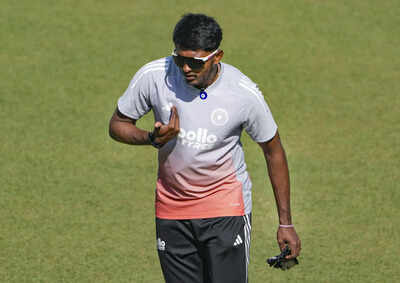Team India and South Africa are preparing for an unusual practice in the second Test in Guwahati, where play will begin 30 minutes early and the traditional break sequence will be reversed, with tea first and lunch later. The BCCI adjusted the timings to align with the North East’s early daylight window, prompting a rare change for a non-day-night Test. All five days of the India–South Africa match, starting November 22 at the Barsapara Cricket Stadium, will follow this modified pattern. Sai Sudharsan, speaking on the JioStar show “Follow The Blues”, said he is comfortable with the format shift and expects players to adapt quickly. “I don’t mind having tea before lunch, I already drink tea during lunch, so I’ll probably enjoy it. Of course, it’s new, but we’ll get used to it. It’s exciting to explore,” said Sudharsan. The South African camp, informed of the change, shared mixed reactions. Spinner Keshav Maharaj said the team understood the reasoning behind the decision and would adjust accordingly. “We actually heard about it recently. It’s an interesting one, but you can understand the thinking behind it. Sunlight becomes a factor, so they’re trying to maximise playing time. We respect the rules put in place, and we’re here to compete and give our best as a South African unit,” Maharaj said on the same show. Opening batter Aiden Markram offered a different view, saying he prefers the traditional Test-match routine but acknowledged that players must adapt to conditions and scheduling.
Poll
Do you think the new practice schedule will benefit the players?
“It’s interesting. I’m not the biggest fan of it, to be honest. I think Test cricket should always start at 10 a.m. with lunch followed by tea. But those are the cards you’re dealt, and you just get on with it. It’ll be something different to experience, but hopefully, it doesn’t become a common thing,” Markram said. With the series resuming in conditions adjusted to local daylight, both sides are preparing for a Test that will begin earlier, pause differently, and still demand the same level of discipline across sessions.








